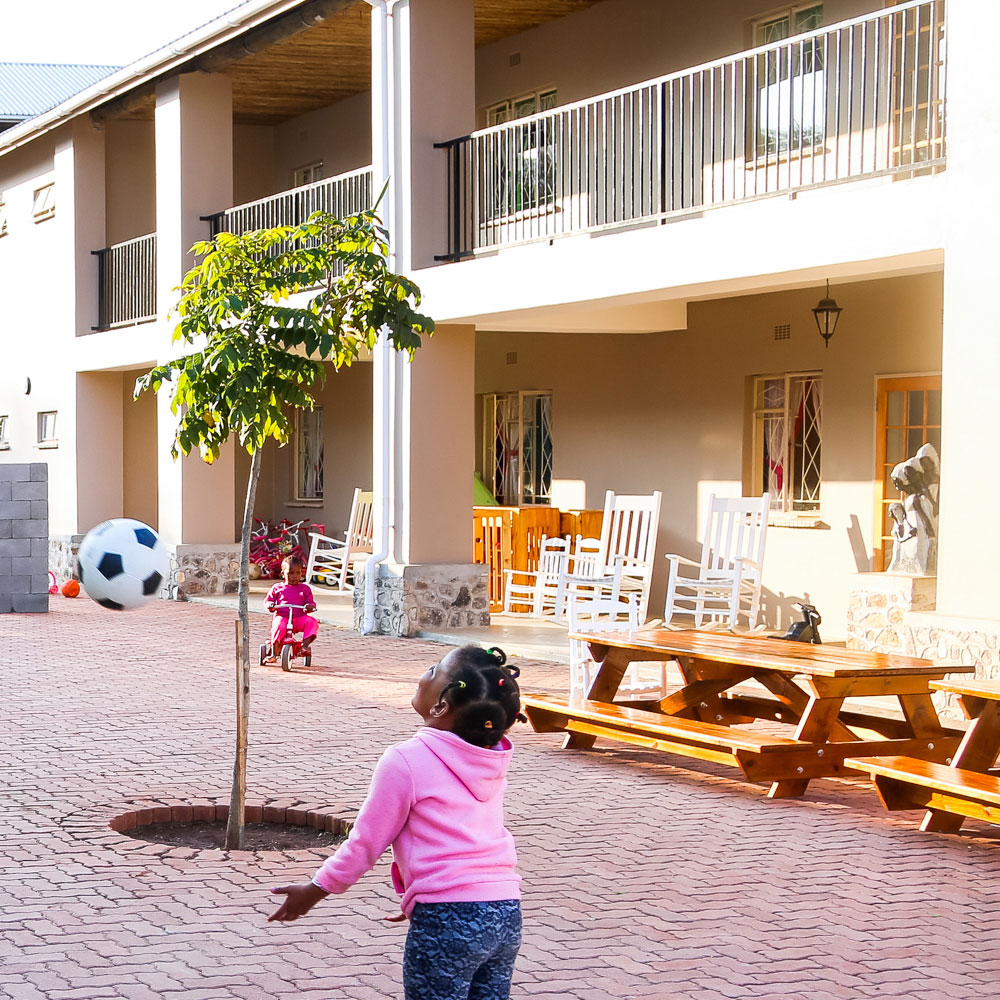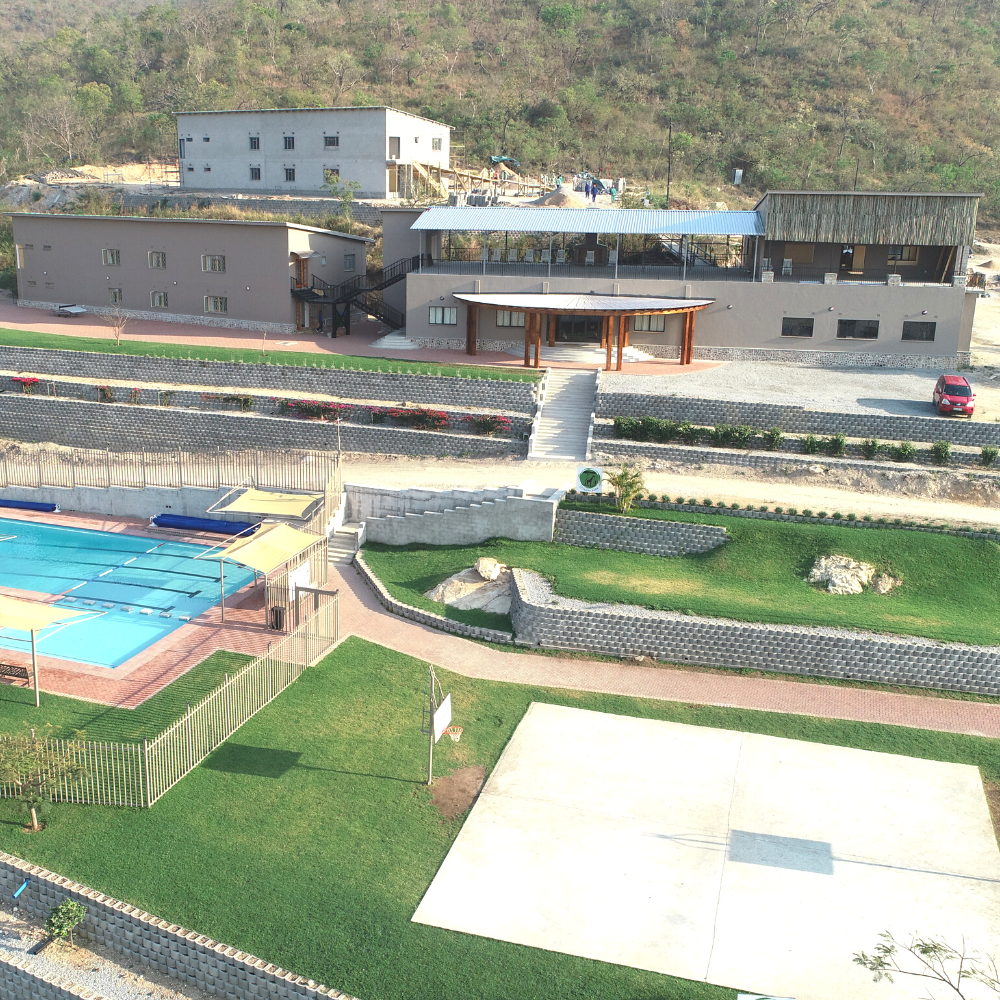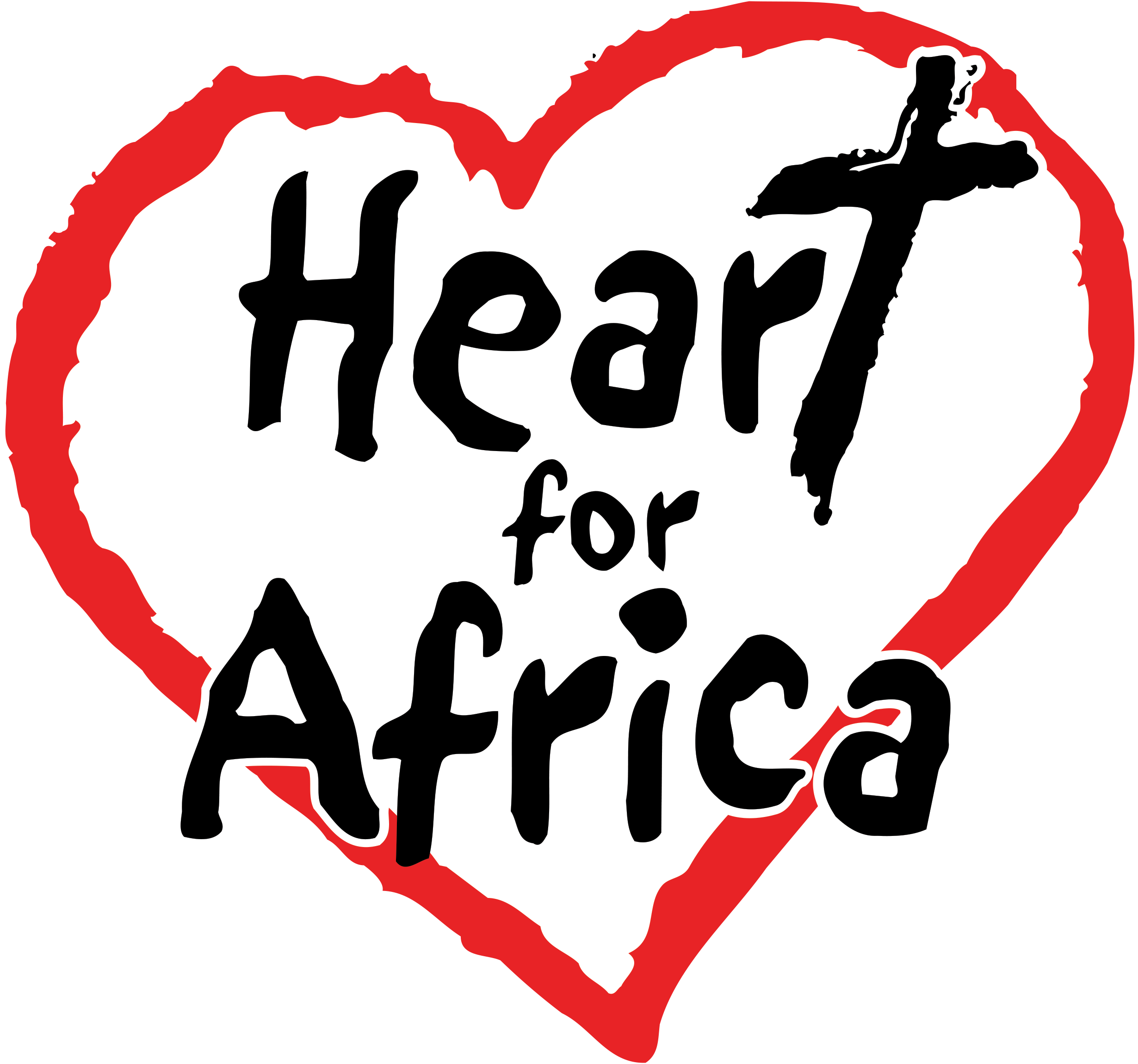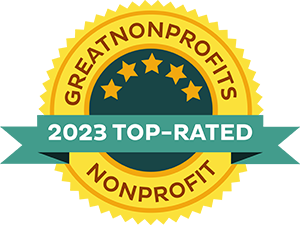Care for Orphans
The Project Canaan Children program provides a safe haven for orphans and vulnerable children. Our vision is to raise a generation filled with HOPE.
Why are there so many orphans in Sub-Saharan Africa?
In 2005, it was estimated that there were 15 million children orphaned by HIV/AIDS in sub-Saharan Africa and it was further estimated there would be 40 million by the year 2010. Out of 1.1 million people, it is estimated that nearly half of the population of Eswatini are vulnerable children. Over 200,000 of these children are orphans.
The HIV/AIDS epidemic and poverty are the most significant factors for these statistics in Eswatini. This horrible disease has almost wiped out an entire generation, leaving mostly grandparents and young children behind to survive as best they can. In the adult population, there is an estimated 70% unemployment. This has resulted in increased rates of baby dumping as parents are simply unable to care for their children.
Our mission towards caring for orphans
Heart for Africa’s mission is to provide a safe haven for the orphans and vulnerable children in Eswatini. Children’s homes and schools have been and will continue to be built to provide for the ever-growing number of orphans being left in the wake of disease, poverty, drought and starvation. This will provide them a chance to live and grow as well as be educated to help break the cycle of ignorance and poverty in their generation. We believe the children that come to us will become solution seekers to the many challenges this tiny kingdom faces. We are raising a generation filled with hope.
The Project Canaan Children’s Home
Our children’s campus has been developed in a way as to serve our children well at each stage of their development from infant to teenager. One way we have achieved this is by dividing our home into a lower, middle and upper campus. Click below to learn more.
Lower Campus
Our Lower Campus consists of 3 homes. When a baby comes to us who is under 6 months of age, he or she goes directly to Kuthula Place (“place of peace” in siSwati). Kuthula Place does not have live-in staff, but rather day and night shift aunties that care for up to 10 babies.
When babies are around 6 months old, they begin to visit the El Roi baby home. Once they are ready they move down to El Roi and live with more than 40 babies who are 6 -18 months old. The care team here is all women and they all live in the house with the babies. We do have a night shift that comes to feed and change the babies throughout the night while the live-in staff sleep.
When a baby is around 18-24 months old, they start to visit the Labakhetsiwe Toddler home (which means “the chosen ones” in siSwati) until they are acclimated and ready to move. There are 10 toddlers in a room. Two to three staff members are in a bedroom right beside each of the four children’s rooms.
Middle Campus
When our Toddler Home gets full, the next transition happens up to the Emseni Middle Campus. This is where our 3-year-old to age 9 children live. Emseni means “grace” in siSwati and each Emseni building has two stories, with 10 children in a room and two staff members in a bedroom attached to the children’s room.
Each building houses a total of 40 children and eight staff. Each home offers a living/sitting/TV room where they gather for socialization. At the age of 8 our children begin to participate in a chore schedule and are responsible for cleaning the home and folding laundry with the aunties/uncles.


Upper Campus
The Emseni Upper Campus is where our oldest children (10-19) live on Project Canaan. They begin to move once they reach the age of 10.
The Upper Campus has its own gathering place for socialization and Sunday Church services called O2.
Each building on the upper campus will house a total of 40 children and eight staff. Each home offers a living/sitting/TV room where they gather for socialization.
It will be their permanent home and final destination until they finish high school.
building for the future
As we receive more children we must make room for them. More homes will need to be built as our family grows. Give below to help us prepare for the future.


The Bridge Program
Keeping in mind that we are committed to our children through adulthood, we are working on developing “The Bridge Program,” which will take them from 18 to 21 years of age and launch them into society. We anticipate having many people from around the world partnering with us to become coaches and mentors to our kids as high school draws to a close, helping to prepare for what is next. There are 5 areas we want to help our children as they cross the bridge to adulthood: life skills training, spiritual care and mentoring, transitional housing, career development, and church and community support networks.
Some of our children will want to go on to university, others will get trades training either on Project Canaan or elsewhere, and some may just want to get a job. We want to help each child be the very best they can be, given the unique upbringing they have experienced. Building “The Bridge” that will take our children beyond high school and into the world will be a critical step for us to think through and plan well.
Hope starts when you sponsor a child
Our Child Sponsorship program is a way for people to join us in the mission of raising a generation filled with hope in Eswatini. Our child sponsors give on a monthly basis to help ensure our children are given the very best care and resources that will enable them to walk in the destiny that God has planned for each one. It truly takes a village to raise a child and our child sponsors are part of our great big village! Join us today. HOPE starts when you sponsor a child.
What our current sponsors have to say:
Ready to make a difference?
FAQs
The children placed in our care have been orphaned or abandoned due to the HIV/AIDS epidemic, illness, poverty or neglect.
When they are placed with us they are no longer orphans. They have joined a great big family with a mom and dad, aunties and uncles, brothers and sisters and even Grandparents. We are committed to providing for the physical, emotional, spiritual and educational needs of each child placed with us until they reach adulthood.
We have a unique plan and platform and are focused in our approach to the care of our children. For several reasons we only accept children under the age of 2 years. There is a need for a home for abandoned babies as most orphanages don’t take babies under the age of 3 or 4. They are expensive and babies can get very sick and die quickly, which makes it higher risk than accepting children who are toilet trained, walking and talking.
Children under the age of 2 are also least likely to have been traumatized, sexually assaulted or physically abused as well. By only accepting children under the age of 2 we would be able to have the maximum impact on their lives, giving them a better future.
These children come from all over the kingdom.
As a family and organization we are committed to these children for life. We want them to eventually finish as much school as they can, then move out to become meaningful contributors to society. We specifically want to help them go from high school to adulthood, preparing them for a bright future that could change the nation.
Many of the children placed in our care come from incredibly tragic situations. Some have been abandoned in pit latrines (outdoor toilets), in the bush or on the side of the road. Many come from family situations in which there is no extended family or the extended family doesn’t have the resources to care for them. In many cases the police are called to rescue the child and coordinate with Social Welfare on the placement of the child. Social Welfare will contact Project Canaan and we collectively decide if the child meets our guidelines for placement. If so, our team will pick up the child and bring them to Project Canaan.
We believe that God has seen them for He is El Roi – the God who sees. He has chosen each one and given us the responsibility of raising them to become leaders for their generation.
We become their legal guardians until they reach the age of majority; in Eswatini that is 18 years old.
Ready to make a difference?


